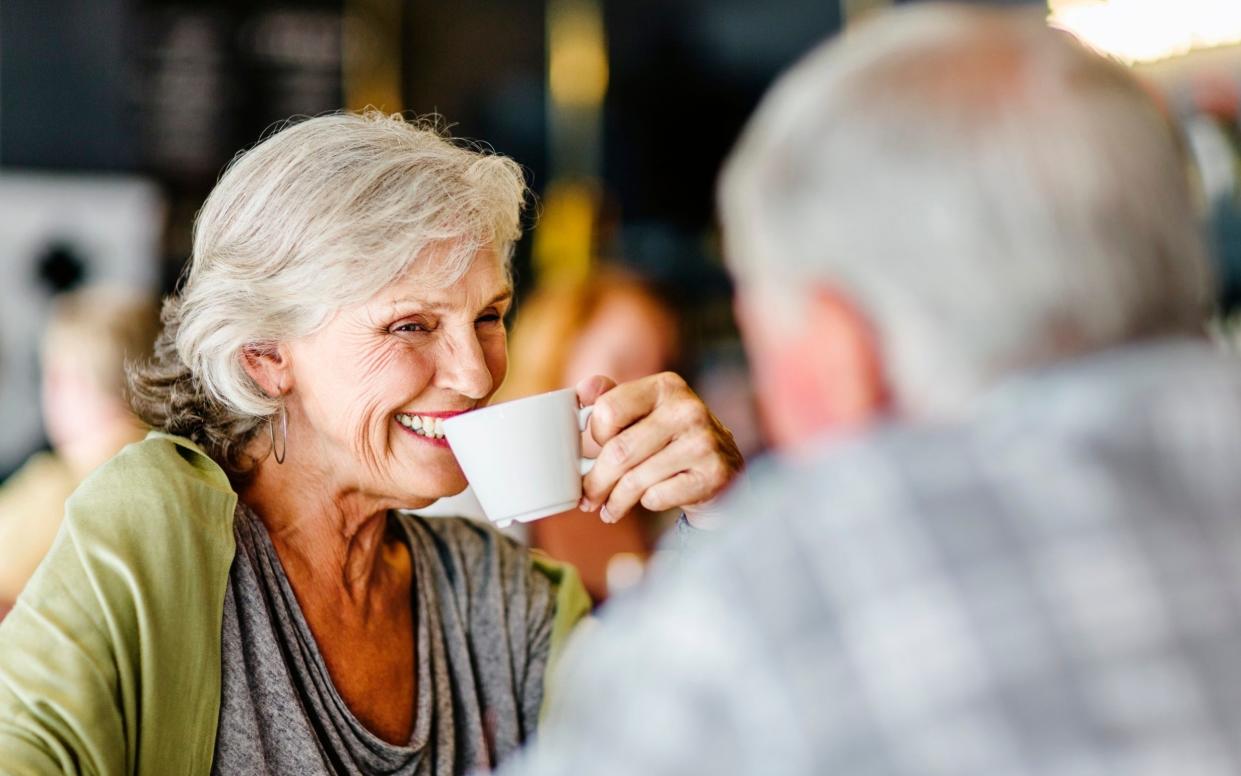How the elderly could benefit by switching to decaf coffee

Switching to decaffeinated coffee could prevent falls among the elderly, research suggests.
A study of older people living in care homes found that cutting out caffeine saw the number of accidents fall by up to one-third.
Experts said those with concerns about falls should “give decaf a go”.
Research has previously suggested that caffeine can worsen bladder and bowel urgency in those with an overactive bladder or incontinence.
Falls are the most common cause of injury-related deaths in people over the age of 75 and frequently occur amid a rush to get to the lavatory.
The new study involved residents of eight care homes who were offered the chance to switch to decaf for six months, after being told about the potential benefits.
The first-of-its-kind trial found the change resulted in a 35 per cent reduction in lavatory-related falls.
A joint report by Care England, Stow Healthcare and University Hospitals of Leicester NHS Trust also found such changes could save the NHS up to £85 million per year if rolled out across care homes.
Toileting-related falls down 30 per cent
The trial followed a similar initiative by the Leicester Trust in 2021, in which decaffeinated drinks were suggested to patients at the hospital after continence nurse specialist Sarah Coombes noticed many were falling on the way to the toilet.
Within three months, toileting-related falls in the hospital were down by 30 per cent.
People living in care homes are three times more likely to fall than those living at home and they are generally more frail, less mobile and have a higher prevalence of incontinence than the general population.
These figures prompted Care England and Stow Healthcare to trial the initiative in a residential care home setting.
Between June and November 2023, about 300 residents across Stow Healthcare’s eight care homes were given the chance to take part in the trial.
More than 90 per cent made the switch, with the choice of caffeine always available on request.
Across the trial period, falls associated with care home residents going to the toilet dropped by 35 per cent.
Older people avoiding drinking water
Prof Martin Green, chief executive at Care England, urged care providers across the country to “give decaf a go”.
He said: “Falls have a detrimental impact on thousands of older people every year, not to mention the knock-on cost to the NHS.
“When we first heard about the results of UHL’s decaf trial in a hospital setting, the potential benefits for social care were immediately clear.
“For such a simple, cost-neutral solution to have such a profound impact is extraordinary. With a huge national focus on reducing pressure on the NHS, this pioneering trial demonstrates that simple solutions can help address enormous challenges.
“Care England is delighted to have been involved in this project and would encourage care providers across the country to give decaf a go.”
It follows warnings that older people are deliberately avoiding drinking water or liquids owing to a lack of public lavatories.
Wales Senior Forum, a national forum of older people made up of representatives from various national pensioners organisations and older people’s groups across the country, said public washrooms across the country had either shut or become less accessible since the pandemic.


